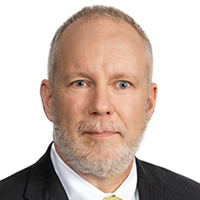
A financial professional’s role is to help clients with their financial needs and concerns, and to help them achieve their financial goals. But as clients approach and prepare for retirement, they may look to you for advice and guidance on non-financial topics that can be fairly overwhelming and are outside your comfort zone.
To best help their retirement-aged clients, financial professionals should consider taking on the role of longevity manager. A longevity manager focuses not just on financial needs, but also on helping clients work through lifestyle needs, such as healthcare, transportation,, technology, etc., that can help enhance their lives in retirement.
Rather than trying to become an expert in the fields outside of financial planning, think about connecting your clients with trusted partners who can help solve the retirement-focused challenges that may be out of your area of expertise.
You can start this process by building and expanding a solid network of various centers of influence (COIs) and asking yourself these three questions:
Subscribe (Minimal 2024)
"*" indicates required fields
Subscribe (Minimal 2024)
"*" indicates required fields
1. Who do you know?
Clients preparing for retirement might find that their needs change and they might be seeking professionals they have not needed before. For example, a client may be looking to downsize from the home they’ve lived in for most of their adult life and need help looking for a new residence. Or, perhaps a client is interested in staying in their home and wants help adjusting and maintaining their residence to better suit their current needs. Though these are not within the scope of financial planning, you may still be able to help with valuable referrals.
Additional reading: Longevity — Fear or Fortune?
Tap into the professional resources you have and refer to the book of business you’ve built over the years. Also, think about folks you are familiar with through a colleague, or who you know on a personal level that are in a specific line of business for which you and your client need expertise. Think about the reputable connections you’ve made with professionals and trade workers outside of your industry such as realtors, plumbers, electricians, HVAC tecnhicians and landscapers. Each of these connections could be useful to a client who’s planning to move or update their home for retirement. Now is the time to use the professional and personal connections you’ve made and put your clients in touch with those willing to help.
2. Who do your clients know?
If you’ve had clients for several years and you’ve built strong relationships with them, they can be a good source of referrals. If you are looking for an expert in a specific line of business, talk to your existing clients about it. Connections can be made anywhere and your clients can be just the right people to help you.
Think about your current COI network and start grouping those people into categories based on needs. After you have grouped them by need, you will see the gaps that have to be filled. Next time you are talking with clients, ask them who they work with and trust in those areas. Then, ask your clients if they would be willing to connect you. Having that client introduction will help to start your conversation off with a level of trust already established. You may also find that your new professional contact has a need for someone in the financial industry, and you may simultaneously grow your client list. That is the power of networking!
3. Who do you need to know?
Let’s say you are helping a client plan for retirement, but they have brought something to your attention that you have not dealt with in the past. Perhaps you need a subject matter expert that is not already in your book of business and your connections don’t have anyone to recommend. If you have worked through your contacts and your clients’ contacts and you still have gaps in your list, you have to think outside the box.
For example, perhaps you don’t have a connection for a memory care facility in the area and this is something your client needs. Now would be a good time to do some research. Start by searching for local facilities online and reading the reviews left by those who have had personal experiences with the businesses. If you have the time, you can visit a few facilities. By doing online and in-person research, you can refine your list and offer options for your clients to evaluate for themselves.
The same process can be followed for most businesses. Doing your homework, paying attention to detail, and pointing your clients in the right direction can help you and them gain new and valuable relationships.
Building a resource of professionals will take some time but it is worth it in the long run. Establishing these relationships now will mean you have a broad range of reliable COIs on hand for any client that may be planning for retirement. Remember, the financial professional of the future is the one that manages longevity. Start building your longevity resources team today to ensure success for tomorrow.







